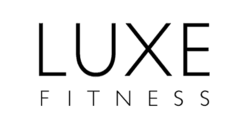A steady rise has been noted in the sales and consumption of protein powders and supplements worldwide over the past decade, with the US market alone expecting annual sales to rocket past $20 Billion by 2020.
No longer are protein powders seen as a niche fad for the ripped, macho male, but a genuine, health-enhancing product that can benefit both men and women who want to improve their outer physique and internal health in a safe and controlled way.
But with protein supplements’ growing popularity, there’s been an inevitable increase in their scrutiny and criticism, much of which questions the safety of the products that so many gym-goers are now rapidly consuming.
And at Luxe Fitness, we’re pleased about that. Because, when it comes to the welfare of your body, we know that safety is paramount. That’s why we are keen to share with you the safety basics surrounding the proteins used in our most popular products, and how these work alongside your body’s natural processes to aid weight loss and build muscle safely. Read on to discover more…
The Safety of Whey and Pea Proteins Explained
The two primary proteins used in Luxe Fitness products are Pea and Whey.
Pea proteinis often a listed ingredient in vegan products. Derived from peas, it contains no lactose or glutens, so is perfect for people with allergies to these ingredients. It works by lowering ghrelin levels in the body, which is secreted by the stomach and tells the brain to trigger the feeling of hunger. Ghrelin levels increase after you eat in preparation of the next meal, eventually bringing about the urge for more food. It’s this process that is slowed down by pea protein. Pea protein also contains three times the amino acid arginine thanwhey protein, (which we will come onto next), which is essential to building muscle. And unlike whey protein, pea protein is naturally free from cholesterol and fat, as well as animal products and soy.
So, is pea protein safe? Well, in addition to being less of an allergen risk than whey, pea protein has been shown in studiesto be just as effective at building muscle. It goes without saying, however, that if you have an intolerance to peas, this protein powder won’t be suitable for you. Also, pea protein contains purines, so people with gout should consult their doctor about its suitability before taking a supplement. Like all Luxe Fitness products, pea protein is considered safe by the FDA.
Moving onto this more popular form of protein supplementation, whey proteinhas been extensively studied and is commonly consumed worldwide. A by-product of animal dairy, whey protein contains 9 amino acids and helps to upsurge muscle protein synthesis while decreasing protein breakdown. If you do not have an intolerance to dairy, whey protein is considered safe and is approved by the FDA in appropriate quantities. Some research has suggested that whey protein might cause some gastrointestinal discomfort in a minority of users, which could be attributed to a mild gut intolerance to the dairy. However, in these instances, pea proteins can be used instead. It’s also important to note that whey protein is thought to have an interaction with certain anti-biotics, osteoporosis medications and parasite-killing drugs, so if you are on any of these, it’s best to consult your doctor before trying whey.
The Importance of Following Instructions
Like with any substance, it is critical that you follow box safety instructions and only use the quantities recommended for your body size. There have been incidences reported by medical bodies where people have overdosed on protein supplements over long periods of time, often using them as meal replacements and therefore causing nutritional deficiencies in other areas. In some extreme examples (involving pre-existing conditions combined with excess protein intake), protein supplement abuse has led to kidney and liver damage. Mental health and self esteem should be a priority alongside your physical health, so it’s important that you remember Luxe protein powders are designed to enhance and optimise your health, not aid extreme and unhealthy weight loss behaviours. As a general rule, protein powders and supplements are safe and nutritionally beneficial so long as you follow the guidelines and take care of your body and mind. Of course, if you have any questions or concerns about the suitability of a Luxe Fitness product, you can speak to a member of the teamas well as your primary care physician.

